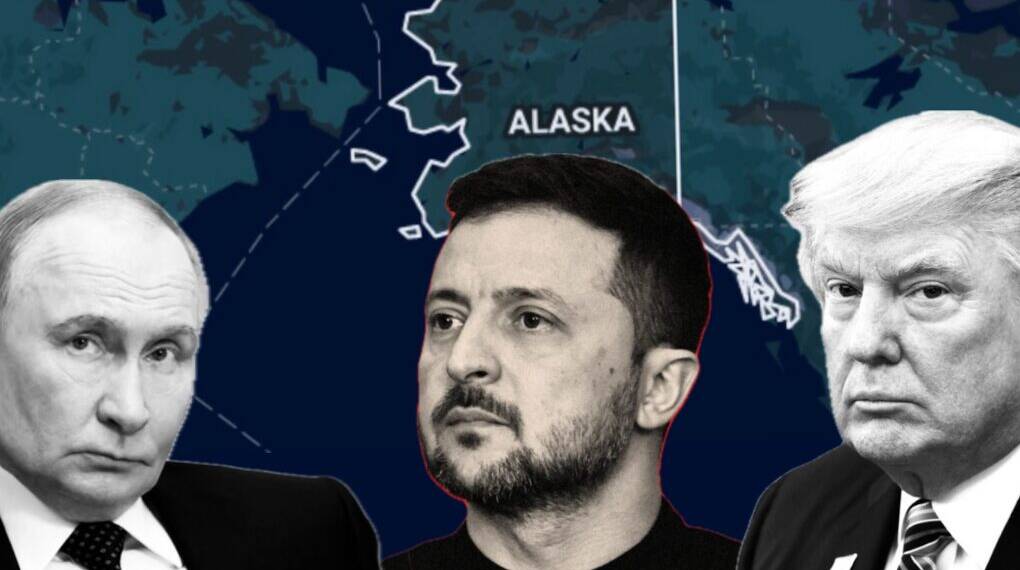Ukrainian President Volodymyr Zelensky has issued a strong warning regarding the upcoming summit scheduled for August 15, 2025, between U.S. President Donald Trump and Russian President Vladimir Putin in Alaska. Zelenskyy dismissed the idea that any peace agreement or resolution could be legitimately reached without Ukraine’s direct involvement. His statement highlights deep concerns that sidelining Kyiv could lead to ineffective and illegitimate outcomes, which he called “dead solutions”.

Ukraine’s Position on the Summit
The summit between Trump and Putin intends to explore pathways to end the Russian invasion of Ukraine—a conflict ongoing for over three and a half years with tragic human and territorial consequences. Trump has publicly suggested that any peace deal might involve “some exchange of territories” between the two countries, a prospect Zelensky categorically rejects, emphasizing that Ukraine’s constitution forbids ceding any territory to Russia and that Ukrainians “will not give their land to the occupier”.
Zelensky’s insistence that Ukraine must be “at the table” stems from the reality that the war is fought on Ukrainian soil against its people, making any external decisions without Kyiv’s input inherently flawed and unacceptable. The Ukrainian president stresses that only “real decisions” involving Ukraine can bring lasting, respected peace, and that decisions made without Kyiv would amount to “futile,” “impractical,” and “stillborn” resolutions.
Geopolitical Implications and Risks
Kyiv’s warning reflects broader anxieties over the diplomatic process that excludes Ukraine from direct talks. There is fear that the U.S.-Russia summit may sideline Ukraine, granting Russia a form of de facto recognition over its annexations or territorial control. Such a scenario risks legitimizing Russian gains without addressing Ukraine’s sovereignty or constitutional mandates.
Furthermore, Russia’s reluctance to meet directly with Zelensky, and historical failed peace attempts via intermediated talks, complicate the peace process. Putin’s foreign affairs adviser acknowledged the Alaska setting as a logical venue for such discussions but also noted that conditions for a three-way meeting (U.S.-Russia-Ukraine) are “far from being created”. The Russian president did not outline his conditions, but previously, the Kremlin has insisted that Ukraine give up the territories Russia occupies, Western nations stop supplying Ukraine with weapons and they exclude Ukraine from membership in the NATO military alliance.
Zelensky’s Stance and Domestic Legitimacy
Zelensky’s message is not solely directed abroad; it reinforces his domestic legitimacy by affirming Ukrainian sovereignty and constitutional integrity. With millions displaced and casualties mounting, any peace deal perceived as a betrayal or concession of Ukrainian lands risks undermining national unity and the government’s standing.
By framing decisions made without Ukraine as “against peace,” Zelensky is signaling to both international negotiators and the Ukrainian public that partial agreements ignoring Kyiv’s interests are unacceptable and doomed to fail.
In a televised address posted on Telegram on August 9, 2025, he asserted that “Putin did not believe in our people and therefore made the hopeless decision to try to take Ukraine. This was his main mistake—not taking Ukrainians into account,” Zelensky further added. “Of course, we will not reward Russia for what it has perpetrated. The Ukrainian people deserve peace. But all partners must understand what a dignified peace is.”
Speculation over a Russia–Ukraine ceasefire centers on freezing current front lines for years, but Ukraine rejects this as it would legitimize Russia’s territorial gains and breach its constitution. Moscow sees it as a way to consolidate control, while Kyiv warns such a deal without its participation would be illegitimate and unsustainable. President Zelensky’s warnings underscore a fundamental principle in conflict resolution: peace agreements impacting a sovereign nation’s territory and future must include that nation’s full participation. Attempts to negotiate peace “without Ukraine” not only risk producing unworkable, illegitimate solutions but may also embolden aggressor powers and deepen conflict. The forthcoming U.S.-Russia summit in Alaska thus carries profound implications not just for diplomatic strategy but for the future of Ukraine’s sovereignty, territorial integrity, and peace prospects.







